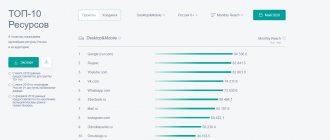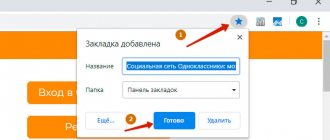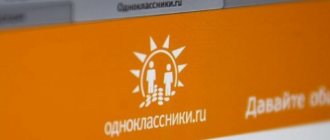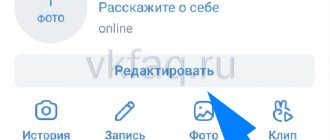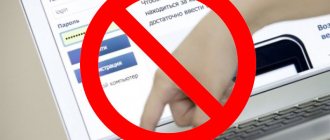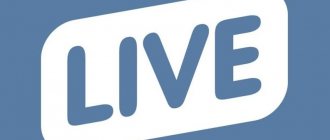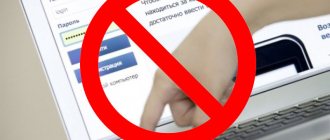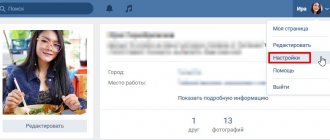Origin, education, scientific degree
Dmitry Anatolyevich Medvedev was born on September 14, 1965 in Leningrad (now St. Petersburg). His father, Anatoly Afanasyevich (1926-2004), was a professor at the Leningrad Technological Institute named after Lensoveta (now St. Petersburg State Technological Institute). Mother - Yulia Veniaminovna (born 1939), philologist, taught at the Leningrad State Pedagogical Institute (now Russian State Pedagogical University) named after A. I. Herzen, later worked as a guide in the city of Pavlovsk.
In 1987, Dmitry Medvedev graduated from the Faculty of Law of the Leningrad State University named after A. A. Zhdanov (LSU; now St. Petersburg State University, St. Petersburg State University), and in 1990 he completed postgraduate studies at the Faculty of Law of St. Petersburg State University. Among Dmitry Medvedev's classmates at the faculty were Konstantin Chuychenko (now acting Deputy Prime Minister of the Russian Federation - Chief of Staff of the Government of the Russian Federation), Nikolai Vinnichenko (Deputy Prosecutor General), Artur Parfenchikov (Head of Karelia).
Candidate of Legal Sciences. Assistant professor. In 1990, he defended his dissertation at St. Petersburg State University on the topic “Problems of implementing the civil legal personality of a state enterprise.”
The real reasons for Medvedev's resignation, and whether he knew about his resignation in advance (1 photo)
Author: Tochka Zreniya
20 January 2021 22:42
Community: Online publication Tochka Vision
Tags: MEDVEDEV Government of the Russian Federation Dmitry Medvedev Kudrin society Medvedev's resignation politics reasons for Medvedev's resignation
82515
1
21.23, Moscow Tochka Views The other day, all of Russia and the whole world were struck by the unexpected resignation of the Russian government, as well as the fact that Dmitry Medvedev will no longer head the government of the Russian Federation. Many in Russia and abroad are asking questions about what caused the resignation of Dmitry Medvedev, and whether he knew about it in advance? The publication Tochka Vision, based on known facts and analysis, will try to answer these questions.
1
The resignation of the Russian government came as a complete surprise not only to Russia, but also shocked the whole world. The Western press was completely confused by this decision of Vladimir Putin. The US State Department was also confused. Almost all the world's leading publications have written about this news these days. Indeed, with this resignation, given the speed with which events developed, a number of important questions arise. The answers to the questions of whether Medvedev knew about his impending resignation, as well as why he was dismissed, are known, they exist. The answer to this question sounds like this - Medvedev knew that he would resign, but did not know that it would take place at the very moment when it took place. In order to understand whether this is true or not, it is necessary to find out the true reason for the resignation of Dmitry Medvedev from the post of prime minister. According to the official version, voiced by experts and political scientists, Medvedev’s resignation is due to the improper implementation by the government and Medvedev personally of the national projects that were determined by Vladimir Putin. But this reason is absolutely false. National projects are such a thing that it is impossible to complete them in a short time and complete them, and even without mistakes. These are fundamental topics. Of course, the government needs to implement national projects, but this is a long and difficult task. One of the main reasons for the resignation of Dmitry Medvedev, according to the publication Tochka Zreniya, is the latest shocking scandal with the Medvedev government’s manipulations with increasing pensions (Putin’s proposal to enshrine the indexation of pensions in the constitution, in the message to the Federal Assembly, which preceded Medvedev’s resignation - this is all in the same place, "to the House of Culture"). Let's remember this scandal. Vladimir Putin ordered an increase in pensions for about a year. The government led by Medvedev did this and reported. And then it suddenly turned out that the government raised pensions, as the president ordered, but only raised them to the subsistence level. Those. raised selectively, for those whose pension did not reach the subsistence level, and at the same time deprived these pensioners of the allowance from the state, which is due to those whose pension is below the subsistence level. In reality, in fact, there was no increase in pensions everywhere, as Putin ordered, although money from the budget, billions, was allocated for this. Then Putin personally intervened in the situation, ordering to raise pensions above the subsistence level, as he initially ordered, and without depriving pensioners of the bonus. Such a scandal, even a crime, open manipulation by the government of Dmitry Medvedev means immediate resignation. However, then Medvedev’s resignation did not follow. It didn’t follow because people like Medvedev cannot simply be dismissed. Too many things are intertwined. As a rule, in such cases, people are sent to an honorary promotion, which is what happened in this case. Putin appointed Dmitry Medvedev as deputy head of the Russian Security Council, creating this position specifically for this purpose, which did not exist in nature before and which is absolutely useless and nominal. This is an honorary promotion. Such an increase has long been known to everyone, in politics and big business. This is exactly what they do when a person needs to be removed, but it is absolutely impossible to fire him, so they fire him, sending him for a special promotion. Therefore, of course, Medvedev understood that after that scandal with his cabinet’s manipulation of pension indexations, he was facing resignation, but he did not know that it would happen on January 15th. Another real reason for Medvedev’s resignation is that in recent years, Dmitry Medvedev has become one of the most unpopular statesmen in Russia. The public demand for his personal resignation was very high. Especially among pensioners, with whom the Medvedev government has more than once carried out such manipulations as with pensions. The fact that Medvedev did not know that on January 15 he would resign for good is evidenced by the fact that Putin received Alexei Kudrin in the Kremlin, exactly one day before his address to the Federal Assembly. Kudrin and Medvedev have long-standing disagreements specifically on economic issues. It was because of these disagreements that Alexei Kudrin left the Medvedev government in the past. And it is significant that Putin received Kudrin literally on the eve of Medvedev’s resignation. In addition, Mikhail Mishustin, a longtime protégé of Kudrin, whom Alexei Kudrin recommended for the post of head of the Federal Tax Service 10 years ago, was appointed to the post of prime minister. It is obvious that now that Medvedev has been sent to the post of deputy head of the Security Council, Alexei Kudrin will return to the government as Deputy Prime Minister for Economic Affairs. It is obvious that they will begin to restore order in this area, which is precisely why Putin proposed enshrining in the constitution both the indexation of pensions and the cost of living and the minimum wage. All these factors, for the government, were eternal sources of manipulation. After changes to the constitution, not a single follower of Medvedev will be able to do this anymore. photo: photo archive TZ text: Alexander Tochka Publication Tochka Zreniya
Source:
Related links:
- Quotes from Dmitry Anatolyevich Medvedev
- You've never seen them like this: world leaders in childhood and youth
- There is no snow, but you hold on: snow was brought to Moscow and to Medvedev’s dacha
- Politician, leader, cucumber: Medvedev wrote two strange tweets that immediately became memes
- Feminists haven't gotten there yet: a few facts about the lives of Japanese women
subscribe to the community “Network publication Tochka Vision”
Tags: MEDVEDEV Government of the Russian Federation Dmitry Medvedev Kudrin society Medvedev's resignation politics reasons for Medvedev's resignation
Did you like the post? Support Chips, click:
33 21 12
Liked
12 2
21
Partner news
Carier start
In 1982, Dmitry Medvedev worked as a laboratory assistant at the department of the Leningrad Technological Institute named after Lensovet.
In 1986-1991 he was a member of the Communist Party of the Soviet Union.
From 1987 to 1990, he was an assistant at the Department of Civil Law, Faculty of Law, Leningrad State University. In the spring of 1989, he participated in the election campaign of Anatoly Sobchak, a professor at the Faculty of Law of Leningrad State University, who ran for People's Deputies of the USSR.
In 1990-1999, Dmitry Medvedev taught at the Department of Civil Law of the Law Faculty of St. Petersburg State University.
At the same time, in 1990-1995, he held the position of adviser to the chairman of the Leningrad City Council of People's Deputies, Anatoly Sobchak, and was an expert on the Committee on External Relations of the St. Petersburg City Hall, whose chairman was Vladimir Putin.
In the 1990s, Dmitry Medvedev was one of the co-founders of commercial and Ilim Pulp Enterprise, which controlled a number of enterprises in the forestry and pulp and paper industries.
How to write a letter to Prime Minister Medvedev
You can write a letter to Dmitry Anatolyevich Medvedev and ask for assistance in resolving your issues:
- Russian Post;
- on the official website of the Government of the Russian Federation;
- by email;
- on the personal website of the Prime Minister;
Write to Medvedev by mail
You can write to Medvedev by mail at the address: 103274, city. Moscow, Krasnopresnenskaya embankment, building 2, building 2.
Be sure to clearly indicate the return address and your contact information on the envelope. Anonymous letters or letters from false addresses will not be considered.
When writing an appeal, follow the general rules:
- The letter must be written in legible handwriting.
- The text of the appeal should be divided into sentences.
- It is prohibited to use offensive language or threaten the life, health or property of officials or their family members.
- It is better to state the essence of the appeal or complaint briefly and to the point. Avoid unnecessary emotions.
- Copies of documents related to the case may be attached to the letter.
Write to Medvedev by email
There is no email address where you can write directly to Dmitry Medvedev. You can ask the Prime Minister a question, write a letter or make a complaint only through the official website of the Government of the Russian Federation and the United Russia political party.
Write to Medvedev on the website
The website government.ru provides the ability to send an electronic appeal to representatives of the Government of the Russian Federation.
To write to Dmitry Medvedev, you need:
- Follow the link governmenru/letters
- Carefully read the requirements for the letter
- Click the “Submit Appeal” button in the lower right corner of the screen and fill out the online form.
- Attach attachments and send the email.
When filling out an electronic form, you can choose how to receive a response: by email or paper letter. The processing time for letters is 30 days.
Letters will not be considered:
- the text of which is written in capital letters or Latin;
- an official response to which was given earlier and no new materials on the case have appeared.
Russian citizens can also contact Dmitry Medvedev using the official website of the United Russia party. By following the link er.ru/reception/questions, you can ask a question, which will be published on the website in the format of an open letter.
Write to Medvedev on social networks
Prime Minister Medvedev is an active user of social networks. He is not only registered on Facebook, Twitter and VKontakte, but also has his own personal video blog. You cannot write an official letter here; you can only comment on photographs and publications, read news about the political life of Russia.
Official pages of Dmitry Medvedev on social networks:
- Twitter: twitter.com/MedvedevRussia
- Instagram: instagracom/damedvedev
- Facebook: www.facecom/Dmitry.Medvedev?fref=nf
- VKontakte: vk.com/dm
- Blog on LiveJournal: blog-medvlivejournal.com/
- Video blog: blog.kremlin.ru
Please note that all user comments are pre-moderated.
In public service
In 1999, Dmitry Medvedev joined the civil service. From November 9 to December 31, 1999 - Deputy Chief of Staff of the Government of the Russian Federation Dmitry Kozak.
From December 31, 1999 to June 3, 2000, he was the deputy of Alexander Voloshin, who headed the Administration of the President of the Russian Federation (from December 31, 1999, the post of acting head of state was held by Vladimir Putin, on March 26, 2000, he was elected President of the Russian Federation).
On February 15, 2000, Dmitry Medvedev headed the campaign headquarters of presidential candidate Vladimir Putin.
From June 3, 2000 - First Deputy Head, from October 30, 2003 to November 14, 2005 - Head of the Administration of President Vladimir Putin.
In 2000-2008, he was also a member of the board of directors of OJSC Gazprom. In 2000-2001 and 2002-2008 he served as chairman, in 2001-2002 - deputy chairman of the company’s board of directors. In 2002-2008, he again headed the board of directors of Gazprom.
On November 12, 2003, he became a member of the Security Council of the Russian Federation. From April 24, 2004 to May 25, 2008 and from May 25, 2012 to the present - permanent member of the Security Council.
On November 14, 2005, Dmitry Medvedev was appointed first deputy prime minister (the prime minister at that time was Mikhail Fradkov, since September 2007 - Viktor Zubkov). He held this post until May 7, 2008. Oversaw the implementation of national projects, ensuring freedom of economic activity, development of competition and antimonopoly policy, implementation of state policy in the field of natural resource management and environmental protection, development of mass communications, justice, interaction of the government with the judiciary and the prosecutor's office.
On December 10, 2007, the leaders of United Russia, A Just Russia, the Agrarian Party and the Civil Power party, at a meeting with Russian President Vladimir Putin, proposed nominating First Deputy Prime Minister Dmitry Medvedev as a candidate for the post of head of state in the elections on March 2, 2008. On December 11, 2007, Dmitry Medvedev announced that, if elected to the presidency, he intended to offer the post of Prime Minister to Vladimir Putin. On December 17, 2007, at the VIII Congress of the United Russia party, Dmitry Medvedev was officially nominated as a presidential candidate. In January 2008, his campaign headquarters was headed by the head of the presidential administration, Sergei Sobyanin.
Dmitry Medvedev
Dmitry Anatolyevich Medvedev is a Russian statesman and political figure, the third President of the Russian Federation (2008 - 2012), Chairman of the Government of the Russian Federation (2012 - 2020), Chairman of the United Russia party (since 2012). On January 15, 2021, Medvedev announced the resignation of the government, after which he was appointed deputy chairman of the Security Council of the Russian Federation.
Origin, childhood, education of Dmitry Medvedev
Dmitry Anatolyevich Medvedev was born on September 14, 1965 in Leningrad. Dmitry Medvedev was the only child in a family that lived in the Kupchino district, a “dormitory area” of Leningrad, on Bela Kun Street.
Father - Anatoly Afanasyevich Medvedev (1926−2004) - was a professor at the Leningrad Technological Institute named after Lensovet. He is a descendant of the peasants of the Kursk province.
Dmitry Medvedev's mother - Yulia Veniaminovna (maiden name - Shaposhnikova) - was born on November 21, 1939, the daughter of Veniamin Sergeevich Shaposhnikov and Melania Vasilyevna Kovaleva - a philologist, taught at the Pedagogical Institute named after A. I. Herzen, and later worked as a guide in Pavlovsk. On the maternal side, Dmitry Anatolyevich Medvedev’s roots are from the Belgorod region. There is not much information about them; the biography of Dmitry Medvedev on Wikipedia only says that Sergei Ivanovich and Ekaterina Nikitichna Shaposhnikov, Vasily Alexandrovich and Anfiya Filippovna Kovalev come from Alekseevka, Belgorod region. However, “Interlocutor” wrote that Dmitry Medvedev’s grandfather Veniamin Shaposhnikov worked in the sanitary service on the railway, and his grandmother, Melanya Vasilievna, was a housewife and sewed at home. Dmitry Anatolyevich’s mother has a twin sister, Elena (real name Serafima) Shaposhnikova. Aunt Medvedev lives in Voronezh and in the United States, where her son Artem, the prime minister’s cousin, bought her an apartment in Miami.
Dmitry Medvedev in childhood
Paternal grandfather - Afanasy Fedorovich Medvedev (1904−1994) was a party worker since 1933. Participant of the Great Patriotic War, captain. Grandmother - Nadezhda Vasilievna Medvedeva was a housewife, raising children: Svetlana and Anatoly.
Dmitry Medvedev attended secondary school No. 305, where he studied well and was a diligent student, even preferring playing outside to studying. After graduating from school, Dmitry Anatolyevich entered the Leningrad State University named after A. A. Zhdanov at the Faculty of Law. Having completed the basic course of study in 1987, Dmitry Medvedev became a graduate student. He completed his postgraduate studies in 1990.
Dmitry Medvedev and his class, 1979
While still at school, Dmitry Medvedev was involved in kayaking and went rowing to the school of labor reserves. During his student years, he was successfully involved in weightlifting. Short stature (Dmitry Medvedev’s height is 163 cm), as is known, can be convenient in this sport. Dmitry Anatolyevich even won university competitions in the barbell.
At the university, Medvedev joined the party and remained a member of the CPSU until August 1991. And another interesting moment from the life of Dmitry Anatolyevich: in a conversation with students at the University of the Pacific, the future third president of Russia shared his revelations. He said that while studying at the university, he received an increased scholarship of 50 rubles. and at the same time worked part-time as a janitor, receiving a salary of 120 rubles. per month.
Dmitry Medvedev (left) in his student years
Since 1988 (from 1988 to 1990 as a graduate student), Dmitry Anatolyevich Medvedev began his career - he taught civil and Roman law at the Faculty of Law of Leningrad State University, then St. Petersburg State University. Defended his thesis on the topic: “Problems of implementing the civil legal personality of a state enterprise.” Dmitry Anatolyevich stopped teaching only in 1999 in connection with his move to Moscow.
Career of Dmitry Medvedev
While studying in graduate school and at the same time working as a teacher, Dmitry Anatolyevich at the same time in 1990-1995 was an adviser to the chairman of the Leningrad City Council of People's Deputies Anatoly Sobchak , which is where his activity as a politician began. Then Dmitry Medvedev was appointed as an expert of the Committee on External Relations of the St. Petersburg City Hall, whose chairman was Vladimir Putin .
In the 90s, Dmitry Medvedev still had time for business. In 1993, he became a co-founder of Finzell CJSC and the owner of a 50% stake. In 1993-1998 - co-founder and head of the legal service of Ilim Pulp Enterprise , owner of a 20% stake. In 1994, he was a co-founder of CJSC Consulting . According to some reports, in the first half of the 90s, Medvedev’s biography also included working as a lawyer in a St. Petersburg joint-stock insurance company.
In 1996, after Sobchak's defeat in the elections, Dmitry Medvedev stopped working at Smolny. Dmitry Medvedev's Moscow period began in November 1999, when he was appointed deputy chief of staff of the Government of the Russian Federation ( Dmitry Kozak ). This was facilitated by Vladimir Putin, .
After the departure of Boris Yeltsin , Medvedev worked as deputy head of the presidential administration of the Russian Federation. Dmitry Anatolyevich headed the campaign headquarters of Vladimir Putin.
In the photo: Vladimir Putin (right) spoke at a press conference at his campaign headquarters. Second from the right is the head of Vladimir Putin's election headquarters - Dmitry Medvedev, 2000. (Photo: Sergey Velichkin, Vladimir Rodionov/TASS)
The official biography of Dmitry Medvedev also contains a record of his work as chairman of the board of directors of OJSC Gazprom (2000 - 2001), deputy chairman in 2001 and again chairman since June 2002.
Since October 2003, Dmitry Anatolyevich Medvedev became the head of the Russian Presidential Administration. Also in 2003, on November 12, he was appointed a member of the Security Council of the Russian Federation. In April 2004, Dmitry Anatolyevich received the status of a permanent member of the Russian Security Council.
Dmitry Medvedev (pictured left) was appointed head of the Russian Presidential Administration by decree of the President of the Russian Federation (Photo by the Kremlin press service/TASS); Russian President Vladimir Putin and head of the presidential administration Dmitry Medvedev (from left to right), 2003. (Photo: Vladimir Rodionov/TASS)
From November 14, 2005 to May 7, 2008, Dmitry Medvedev served as First Deputy Chairman of the Russian Government. From 2006 to 2008, he was also Chairman of the Presidium of the Council for the Implementation of Priority National Projects. In October 2007, Medvedev announced the implementation of a project to connect all Russian schools (59 thousand) to the Internet.
On December 10, 2007, the main news was that Vladimir Putin supported the candidacy of Dmitry Medvedev for the post of President of the Russian Federation. “As for the candidacy of Dmitry Anatolyevich Medvedev, I have known him very closely for more than 17 years, and I fully and completely support this candidacy,” said Vladimir Vladimirovich. The next day, Medvedev’s appeal to Putin was shown on TV “with a request to give agreement in principle to head the government of Russia after the election of a new president of our country.” On December 17, 2007, Dmitry Medvedev was nominated as a candidate for the post of President of Russia at the congress of the United Russia party. There was only one delegate against, and 478 people in favor.
First Deputy Prime Minister of the Russian Federation Dmitry Medvedev at a press conference at his election headquarters. (Photo: Dmitry Astakhov/TASS)
Dmitry Medvedev went to the polls with the slogan “Together we will win.” Medvedev's election headquarters was headed by the head of the Presidential Administration and future mayor of Moscow Sergei Sobyanin . In his election promises, Dmitry Anatolyevich spoke about increasing the level and quality of life of the population, and about continuing work on priority national projects. “...the main thing for our country is the continuation of calm and stable development. What is needed is simply decades of stable development. What our country was deprived of in the twentieth century was decades of normal life and purposeful work,” said the future third president in a speech at the II All-Russian Civil Forum on January 22, 2008.
In the elections held on March 2, 2008, Dmitry Anatolyevich Medvedev received 52,530,712 votes (70.28%). In his inaugural speech, Dmitry Anatolyevich stated that he considered the priority task in his new position to be “the further development of civil and economic freedoms, the creation of new civic opportunities.” He confirmed this course by signing his first decrees, which directly relate to the social sphere. In particular, one of the first documents was a federal law providing for the provision of housing at the expense of the federal budget to all veterans of the Great Patriotic War in need of improved housing conditions until May 2010.
Dmitry Medvedev taking the oath at the inauguration ceremony of the Russian President in the Grand Kremlin Palace, 2008. (Photo: Vladimir Rodionov/TASS)
During the presidency of Dmitry Medvedev, population growth stabilized and the percentage of large families increased. He continued Vladimir Putin's policy in the field of agriculture. It is difficult to consider the activities of President Medvedev in isolation from the work of the Prime Minister of those years, Putin; joint photos of representatives of the “tandem” were often published in the media. Together, Medvedev and Putin made working trips around the country, to its farthest corners, as they still do. So in 2021, Russian President Vladimir Putin and Prime Minister Dmitry Medvedev visited the island of Alexandra Land in the Franz Josef Land archipelago on March 29, where they talked with environmentalists and got acquainted with the results of cleaning the island from garbage.
Under President Medvedev, real incomes of the population increased by almost 20%, the average size of pensions doubled; more than a million families have improved their living conditions thanks to the maternity capital program. Much has been done in the field of small business - Medvedev helped simplify the procedure for starting your own business, and also lifted some restrictions for entrepreneurs; Dmitry Anatolyevich himself called for “not to make business a nightmare.”
Computer technology, innovation, gadgets
The beginning was made of the creation of a powerful research center, which was supposed to become an analogue of the American Silicon Valley. In September 2010, Medvedev signed Federal Law No. 244 “On the Skolkovo Innovation Center,” Dmitry Anatolyevich has repeatedly called this center a landmark and most important link in the modernization of Russia.
Dmitry Medvedev speaking at the opening of the Moscow School of Management Skolkovo (Photo: Dmitry Astakhov/TASS)
In general, Dmitry Medvedev devoted a lot of time to innovation, which was the subject of jokes about him, due to the president’s craving for modern gadgets, the development of the Internet, and presence on social networks. Photos of Dmitry Medvedev with smartphones and other devices were actively published in the news.
Today, in 2021, Dmitry Medvedev remains a lover of social networks, registered on Twitter, VKontakte, and publishes photos on the social network Instagram. For example, Medvedev congratulated him on Russia Day using Instagram, posting a photo with four Russian flags against the backdrop of a coniferous forest.
Photo: www.instagram.com/damedvedev
Dmitry Anatolyevich's nickname on Instagram is damedvedev. By the summer of 2017, Medvedev had posted more than 500 photos there, which collected tens of thousands of “likes.” In particular, the photo of Medvedev and Putin dining on fish soup on Lake Ilmen received 170 thousand “likes.” Many of Medvedev’s posts on social networks immediately become news and appear in many media outlets.
Military conflict with Georgia
A difficult episode occurred in the biography of President Medvedev already in the first year of his presidency. On the night of August 7-8, 2008, shocking news came from the Caucasus - Georgian troops began intensive artillery shelling of the capital of South Ossetia, Tskhinvali, and surrounding areas. The tragedy continued when a few hours later the city was stormed by Georgian armored vehicles and infantry. As a result of the attack, more than ten servicemen of the Russian peacekeeping forces were killed and several dozen were wounded.
On the same day, South Ossetian President Eduard Kokoity reported numerous casualties among civilians in South Ossetia and accused Georgian President Mikheil Saakashvili of genocide of the Ossetian people.
Later Medvedev Fr.
During this period, President Medvedev held negotiations with French President Nicolas Sarkozy, which ended with the adoption of a plan to resolve the armed conflict in Georgia. Dmitry Anatolyevich characterized the actions of the Georgian army in the zone of the Georgian-South Ossetian conflict as genocide and ethnic cleansing. He also compared the Georgian leadership to “thugs who smelled blood.”
French President Nicolas Sarkozy and Russian President Dmitry Medvedev (from left to right) at a meeting in the Kremlin. (Moscow, August 12, 2008)
The media showed a photo of a meeting in an official setting in the Kremlin on August 14, 2008 (at the end of active hostilities in Georgia) of Medvedev with the President of the Republic of Abkhazia Sergei Bagapsh and the President of the Republic of South Ossetia Eduard Kokoity . During the meeting, Kokoity and Bagapsh signed six principles for resolving the Georgian-South Ossetian and Georgian-Abkhaz conflicts, previously developed by Medvedev and Sarkozy; The presidents of the unrecognized republics were informed that Russia would support any decision on the status of South Ossetia and Abkhazia that the peoples of these republics would make.
Russian President Dmitry Medvedev, Abkhaz President Sergei Bagapsh and South Ossetian President Eduard Kokoity (from left) at a meeting in the Kremlin. (Photo: Dmitry Astakhov/TASS)
Foreign policy of Dmitry Medvedev
In 2009, Dmitry Medvedev held talks with Barack Obama during his official working visit to Moscow. Bilateral agreements were signed, including on the transit of American military cargo to Afghanistan through Russian territory, and guidelines for the reduction of strategic offensive weapons were outlined. On April 8, 2010, Russian President D. Medvedev and US President B. Obama in Prague signed the Treaty on the Reduction of Strategic Offensive Arms for a period of 10 years.
US President Barack Obama and Russian President Dmitry Medvedev (from left to right), Moscow. July 7, 2009 (Photo: Dmitry Astakhov/TASS)
On November 28, 2009, Dmitry Medvedev, President of Belarus Alexander Lukashenko and President of Kazakhstan Nursultan Nazarbayev in Minsk signed an agreement on the creation of a single customs space on the territory of Russia, Belarus and Kazakhstan from January 1, 2010.
Russian President Dmitry Medvedev, President of Belarus Alexander Lukashenko and President of Kazakhstan Nursultan Nazarbayev (from left to right). Belarus. November 29, 2009
In April 2010, Dmitry Anatolyevich Medvedev held negotiations with Ukrainian President Viktor Yanukovych , which resulted in the signing of the Kharkov agreements on the continued basing of the Russian Black Sea Fleet in Crimea after 2021.
Russian President Dmitry Medvedev and Ukrainian President Viktor Yanukovych (from left to right) (Photo: Dmitry Astakhov/TASS)
As Prime Minister. Criticism of D. Medvedev
On May 8, 2012, Dmitry Medvedev was appointed Chairman of the Government of the Russian Federation. As prime minister, he had to face a more severe economic crisis than during his presidency, and Dmitry Anatolyevich has received a lot of criticism in recent years, in particular from the Communist Party of the Russian Federation. In the summer of 2013, tens of thousands of people, taking to the streets as part of the all-Russian action launched by the communists for the resignation of the cabinet of ministers, openly expressed their disagreement with the course pursued by the highest executive body of power. In the fall of 2021, the leader of the Communist Party of the Russian Federation Gennady Zyuganov noted that there was nowhere to go further with Medvedev’s team.
In 2021, Dmitry Medvedev was remembered for several phrases that eventually gained great popularity and became Internet memes. Medvedev made it into the top ten memes of the year with his famous appeal to the residents of Crimea “There is no money, but you hold on.” And the prime minister’s proposal to rename “Americano” to “Rusiano” took 7th place in the Google search rankings.
I also remember how in the summer of 2021, Dmitry Anatolyevich, at the educational forum “Territory of Meanings,” advised a teacher from Dagestan, who complained about the low salaries of teachers in the republic, to start a business. “The most important thing is personal choice. I am often asked about this. Both for teachers and teachers, this is a calling. And if you want to earn money, there are a lot of great places where you can do it faster and better. The same business,” the Prime Minister said.
In 2021, the Anti-Corruption Foundation * of Alexei Navalny published an investigation dedicated to Dmitry Medvedev. The main topic is real estate objects (they were filmed by quadcopters from a bird's eye view) owned by funds and companies that, according to the authors of the publication, are associated with the Prime Minister. News about the film “He’s Not Dimon” became a notable phenomenon in the spring of 2021.
The prime minister himself called all the information presented dregs and nonsense.
In turn, a group of deputies from the Communist Party of the Russian Federation submitted a draft protocol instruction in connection with the accusations that appeared on the Internet. The document states that the information published by Navalny caused a wide public outcry, and the lack of any reaction to these “revelations” causes significant damage to the authority of government authorities. In this regard, the Communists instruct the State Duma Committee on Security and Anti-Corruption to conduct an audit of the publication “He’s Not Dimon for You.” At its meeting on April 5, the State Duma by a majority vote rejected the draft protocol order submitted by deputies of the Communist Party faction to conduct a parliamentary investigation of the materials on the real estate of Prime Minister Dmitry Medvedev, set out in the investigation.
“I will not specifically comment on the absolutely false products of political crooks and would believe that the faction of the Communist Party of the Russian Federation, which I respect, should refrain from this,” Medvedev said, answering a question from a deputy from the Communist Party of the Russian Federation in the State Duma. Dmitry Anatolyevich Medvedev called the FBK accusations “absolutely false products of political crooks.”
In April 2021, head of government Dmitry Medvedev reported on his income. According to the declaration, Medvedev’s income in 2016 decreased slightly and amounted to more than 8.5 million rubles.
According to April survey data from the Levada Center (a non-profit organization performing the functions of a foreign agent), the approval rating of Russian Prime Minister Dmitry Medvedev fell by 10% over the month. The Prime Minister's press secretary, Natalya Timakova, believes that the poll, according to which 45% of Russians support Medvedev's resignation, should not be taken seriously due to his political bias.
Following the 2021 presidential election, which was won by Vladimir Putin, the Russian government led by Dmitry Medvedev resigned on May 7. This happened after the presidential inauguration. Then President Putin, at a plenary meeting of the State Duma, asked deputies to support his proposal to appoint Dmitry Medvedev to the post of Prime Minister of the Russian Federation.
Speaking about why he chose Medvedev again, the head of state noted that, despite all these difficulties, the government under the chairmanship of Dmitry Medvedev managed to preserve opportunities for the development of the country. Putin noted that over the past year and a half, Medvedev and some members of the government have been working on the program, which was set out in the new “May Decree.”
In turn, the leader of the Communist Party of the Russian Federation Gennady Zyuganov expressed the opinion that the composition of the government proposed by candidate Medvedev will not be able to implement the strategy of the President of the Russian Federation.
On May 8, the State Duma approved the appointment of Dmitry Medvedev to the post of Prime Minister. According to the voting results, Medvedev's candidacy was supported by 374 deputies with the required 226 votes. 56 parliamentarians spoke out against Medvedev, three did not take part in the vote, the news reported.
Resignation of the Medvedev government
On January 15, 2021, the information space was blown up by the news that the entire government of Dmitry Medvedev had resigned.
The news of the government's resignation was announced during a meeting between the prime minister and head of state Vladimir Putin. Dmitry Medvedev noted that he considers the government’s departure “correct in accordance with Article 117 of the Constitution of the Russian Federation.”
The President promised that he will meet with every member of the Cabinet, but in the meantime he asks them to fulfill their duties to the fullest extent. Vladimir Putin thanked members of the government for their joint work, “although not everything worked out”
Vladimir Putin also decided to introduce the post of Deputy Chairman of the Russian Security Council and offer this position to Medvedev.
“Dmitry Anatolyevich has always dealt with these issues, both from the point of view of increasing our defense capability and security. I consider it possible, and I asked him about it, that in the future he would deal with issues of precisely this property, this category. I consider it possible and will do this in the near future - I will introduce the position of deputy chairman of the Security Council,” the head of state said at a meeting with members of the government.
“To appoint Dmitry Anatolyevich Medvedev as Deputy Chairman of the Security Council of the Russian Federation, relieving him of his duties as Chairman of the Government of the Russian Federation,” says Putin’s decree, signed on January 16.
It also became known that Medvedev remains the head of the United Russia party.
Personal life and hobbies of Dmitry Medvedev
The prime minister's wife, Svetlana Vladimirovna Medvedeva (surname before marriage - Linnik) was born on March 15, 1965 in Kronstadt, in the family of military sailor Vladimir Alekseevich Linnik and economist Larisa Ivanovna Linnik. After moving to Leningrad, Svetlana Linnik studied at the same school with Dmitry Medvedev. Svetlana Medvedeva graduated from LFEI, works in Moscow and organizes public events in St. Petersburg. Dmitry Medvedev’s wife heads the board of trustees “Spiritual and moral culture of the younger generation of Russia” and is the President of the Foundation for Socio-Cultural Initiatives.
Dmitry Medvedev with his wife Svetlana (Photo: Dmitry Astakhov/TASS)
The Medvedevs have a son, Ilya (b. 1995), who completed his studies at the Moscow State Institute of International Relations in 2021. The MK publication published a photo of the prime minister’s son and an interview with him. In it Ilya Medvedev says that the topic of his diploma is “Joint-stock companies in Russia and England, legal regulation.” Medvedev's son also talks about his love for theater, football and fencing. But Ilya Medvedev admitted that he no longer dreams of a career in cinema after he starred in Yeralash and saw it from the outside.
Dmitry Medvedev loves football and has been a Zenit fan since childhood. There are many photos of Medvedev wearing a Zenit scarf. Favorite rock band: Deep Purple. Dmitry Anatolyevich also listens to Linkin Park with his son Ilya. Medvedev’s favorite bands include “Zemlyane”, with many rock musicians, Russian and foreign, the prime minister met and took joint photos.
Dmitry Medvedev (second from left) with his wife Svetlana and Governor of St. Petersburg Georgy Poltavchenko (right) at the Champions League match: Zenit (St. Petersburg) - Shakhtar (Donetsk). (Photo: Ruslan Shamukov/TASS)
Dmitry Anatolyevich is interested in photography. I started taking photographs as a child using a Smena-8M camera. Already as president, Medvedev participated in the open-air photo exhibition “The World through the Eyes of Russians,” held in March 2010 on Tverskoy Boulevard in Moscow. Today Medvedev’s arsenal includes cameras from Leica, Nikon and Canon.
Prime Minister of the Russian Federation Dmitry Medvedev during a visit to the State Museum-Reserve of Sergei Yesenin in the village of Konstantinovo. (Photo: Alexander Ryumin/TASS)
“Of course I like photographing people. But photographing people is not at all easy for me. After all, because of my work, it will look quite strange if at some point I run out with a camera and start photographing someone. I’m afraid people simply won’t understand me,” Medvedev said about his passion for photography.
* The non-profit organization “Anti-Corruption Foundation” was included by the Ministry of Justice of the Russian Federation in the register of organizations performing the functions of a foreign agent.
Work in senior government positions
On March 2, 2008, Dmitry Medvedev was elected president of the Russian Federation, becoming the youngest head of state in Russian history since 1917. 70.28% of voters voted for him (the second place in the elections was taken by the leader of the Communist Party of the Russian Federation Gennady Zyuganov, 17.72%). Dmitry Medvedev took office as president on May 7, 2008 and held this post until May 7, 2012. He was the Supreme Commander-in-Chief of the Armed Forces (including during the armed conflict with Georgia in August 2008), Chairman of the State Council.
From May 25, 2008 to May 25, 2012, as head of state, he was Chairman of the Security Council of the Russian Federation.
On September 24, 2011, at the XII Congress of United Russia, Dmitry Medvedev proposed to nominate the party chairman, Prime Minister of the country Vladimir Putin, as a party candidate in the next presidential elections in 2012. The head of government, in turn, noted that for him “this is a huge honor” and said that if he is elected, “Dmitry Anatolyevich ... will head the government of the Russian Federation in order to continue the work of modernizing all aspects of our life.”
On May 7, 2012, Russian President Vladimir Putin, on the day of his inauguration, introduced the candidacy of Dmitry Medvedev to the State Duma to obtain consent to appoint him as chairman of the government. On May 8, 299 out of 450 deputies voted for Medvedev’s candidacy, 144 voted against.
Since May 8, 2012, Dmitry Medvedev has been Prime Minister. He was reappointed to this post on May 8, 2021 after the next presidential elections in the country. His candidacy was supported by 374 State Duma deputies, 56 voted against.
Since May 22, 2012 - member of the All-Russian political party "United Russia", since May 26 - chairman of the party.
Thanks for everything to Dmitry Anatolyevich!
Dmitry Medvedev - President of the Russian Federation from May 7, 2008 to May 7, 2012. Chairman of the Government of the Russian Federation from May 8, 2012 to January 15, 2021. Since January 16, 2021 - Deputy Chairman of the Security Council. Chairman of the United Russia party from May 26, 2012 to the present day.
As he has repeatedly noted, in 2021 and 2021, when Medvedev had already ceased to be prime minister, he had two topics for statements - PR about the “four-day plan” and about mandatory vaccination. I spoke about the latter topic in the material “Stun guns for the unvaccinated.” These same “electric stun guns”, thanks to the “practical” efforts of Sobyanin, the Moscow authorities and Rospotrebnadzor, have already switched to real time.
But here's what's remarkable. Putin proposed including five people in the top five of the United Russia list for the fall elections to the State Duma; Medvedev was not among them. The list included Defense Minister Sergei Shoigu, Foreign Minister Sergei Lavrov, head physician of the hospital in Kommunarka Denis Protsenko, co-chairman of the ONF Elena Shmeleva and Commissioner for Children's Affairs Anna Kuznetsova. After Putin’s speech, Medvedev said that the federal five list was a joint proposal from him and the president. But, as they write, Medvedev only learned a few days before the party congress that he would not head its federal list. The decision on the top five of the United Russia list was made in secrecy in recent days. One of the congress participants stated that Medvedev was “to put it mildly, in a bad mood; with the naked eye it could be seen in his facial expression.”
Journalist Andrei Karaulov reacted to this news. Karaulov began with these words:
“Everyone who knows how vulnerable and ambitious Dmitry Anatolyevich Medvedev is, everyone who knows how internally aggressive he is, my guess, vindictive, my guess, internally unhealthy, I say so mildly... Everyone who understands how vulnerable Medvedev is, everyone see the beginning of the end." Karaulov goes further. He even calls Medvedev a word that is deadly for an active politician: “Nobody.”
Karaulov remembered what Medvedev did as president. This is a dubious police reform, when they got rid of professionals under the guise of reform. This is the translation of the clock hands, when everything was done at the highest bureaucratic level, but they forgot to consult with the roosters. Karaulov also once again recalled the story of how Medvedev signed an agreement with Norway, when we gave this country part of the territory or, as it would be more correct to say, water areas. We are talking about a water area equal to 6 territories of Crimea.
Let us explain about the “treaty with Norway” that Karaulov mentions. September 5, 2010
Russian President Dmitry Medvedev and Norwegian Prime Minister Jens Stoltenberg signed an agreement “On the delimitation of maritime spaces and cooperation in the Barents Sea and the Arctic Ocean.”
And on March 25, 2011, the State Duma of the 5th convocation, with 311 votes of United Russia deputies, approved the law “On the ratification of the Treaty between the Russian Federation and the Kingdom of Norway on the delimitation of maritime spaces...”. 57 members of parliament are against ratification of the treaty. Members of the Communist Party of the Russian Federation faction voted “against”, and representatives of A Just Russia and the Liberal Democratic Party also spoke out against it, but did not vote. By signing the delimitation agreement on Norwegian terms, Russia not only lost about 80 thousand square meters. km, but also threatened Russian fishing in the western regions of the Barents Sea. On March 30, 2011, the Federation Council ratified the agreement between the Russian Federation and Norway on the delimitation of spaces in the Barents Sea and the Arctic Ocean. As noted, the ratification was, one might say, classified as “secret”. For the first time in recent years, the central media did not report this. Before this, about 60% of all Russian catch in the Barents Sea was caught in areas that the treaty places under Norwegian jurisdiction. Huge fishing and other fishing potential has been lost. We are talking about a water area of about 240 thousand square kilometers. We must not forget that the conclusion of this agreement is a colossal step in strengthening NATO and increasing pressure on Russia. Yes, by the way, Jens Stoltenberg, who accepted such a gift from Medvedev, successfully became NATO Secretary General in 2014... with all the following conclusions...
In addition, it is absolutely correct that Medvedev gave the Norwegians a sea of oil. In Norway in 2013 there was truly nationwide euphoria. On the part of the Barents Sea shelf, which was ceded to Norway in 2010, hydrocarbons worth 30 billion euros were found. But the deposits of oil, gas and other natural resources in this region have been well known since the time of exploration by Soviet geologists... So what should we call this act committed by Medvedev and the Russian authorities under Medvedev’s presidency? This is the surrender of national interests...
Let's add something else.
On March 9, 2011, President Dmitry Medvedev signed the federal law “On the ratification of the Agreement between the Government of the Russian Federation and the Government of the United States on the transit of weapons ... and personnel through the territory of the Russian Federation in connection with the participation of the United States in efforts to ensure the security, stabilization and restoration of the Islamic Republic of Afghanistan.” Cute name, right? In fact, this document only recorded a process that by that time was already in full swing: the agreement on the transit of American goods was signed during the visit of US President Barack Obama to Moscow in 2009. After this, the transfer of individual consignments and cargo, test flights of transport aircraft, and a gradual increase in transit volumes began.
The federal law signed by Medvedev states that "the total number of such flights is up to 4,500 one-way flights per year." How did the actions in favor of the US and NATO end? Today, Secretary of the Security Council of the Russian Federation Nikolai Patrushev at the Moscow International Security Conference, among other things, pointed out that during the stay of the Western military in Afghanistan in the country, the volume of drug production increased 40 times. Now the US and NATO are withdrawing their troops from there. “The degradation of the situation in Afghanistan, which is progressing with the withdrawal of US and NATO military contingents, will contribute to the increase in terrorist activity of ISIS and Al-Qaeda (organizations banned in the Russian Federation) in this country,” Patrushev stated. That is, Russia, thus, contributed to a dramatic increase in geopolitical risks in the southern “underbelly” of Russia.
And I will not tire of reminding you of the depth of Medvedev’s understanding of security issues for the state, as can be judged by his words in 2011 regarding Libya, when he was president: “...Russia supported Security Council resolution No. 1970 and passed resolution No. 1973... I hope that all states who are now taking part in the operation to close the airspace (of Libya) and are using their armed forces proceed from one thing, that all this is being done in the name of the people of Libya, in order to prevent further loss of life and the disintegration of Libya as a state... I believe that these decisions (of Russia) are balanced and absolutely weighed... this was done consciously... For most Western countries, the current leader of the Libyan revolution is no longer a handshake person with whom no one will have contact anymore...” How did it all end because of this position of Russia? The massacre, the civil war, the brutal murder of Gaddafi, Clinton’s “wow!” The United States and NATO are confident in the possibility of further actions around the world, following the same scenario. They believed so much that they have long since reached Russia, and here they will soon try to carry out military operations to export democracy. Compulsory vaccination will help. Suppress, intimidate, let them know their place, everyone - to the nail!
Regarding domestic policy, we remember Medvedev’s empty declarations: “We must concentrate on the four I’s - institutions, infrastructure, innovation, investment.” During Medvedev’s presidency and premiership, where are the institutions, where is the infrastructure, where are the investments?! All that remains are the negative consequences of creative “innovations.”
Thanks to Dmitry Anatolyevich for everything! But, unfortunately, the matter is not only in the figure of Medvedev.
There are many of them, legion. Let me remind you what I paid attention to in one of the recent materials. According to The National Interest magazine, Russia has several "pro-Western liberal leaders", such as Dmitry Medvedev, Anatoly Chubais or Alexander Voloshin . However, all of them are not good enough for Washington to place high hopes on them. One is weak, the other is extremely unpopular with voters, the third is old. The author of the article, Professor Ivan-Ivan-Sasha Shikhan, among all liberal leaders, singles out Alexei Kudrin , head of the Accounts Chamber of the Russian Federation, former first deputy prime minister and twice minister of finance. It is he, the American expert believes, who is “a long-time supporter of free trade and democracy and has a well-deserved reputation as a liberal reformer and independent thinker.” She forgot to mention Sheehan in her “conclusions” about German Gref . Probably saving it. He apparently has a slightly different mission, “watching over Russia from global capital,” a function performed in the 90s and 2000s by Chubais. And this is only the “first row” of destroyers, and not all of them. These individuals are followed by the entire army of the “fifth column”, which day by day, and this is visible to the naked eye, is strengthening its control over Russia.
Subscribe to our channel in Yandex.Zen!
Click “Subscribe to channel” to read “Tomorrow” in the Yandex feed
Participation in various bodies
He heads the presidium of the Council under the President of the Russian Federation for strategic development and national projects, and is also the deputy chairman of this Council (since July 2021).
Heads government commissions for monitoring foreign investment in the Russian Federation (since October 2012), on issues of socio-economic development of the North Caucasus Federal District (since March 2013), on digital development, the use of information technology to improve the quality of life and living conditions business activities (since September 2013), on issues of socio-economic development of the Far East (from February 2015), on issues of socio-economic development of the Kaliningrad region (from March 2015), on import substitution (from August 2015), on issues agro-industrial complex and sustainable development of rural areas (from June 2021), on economic modernization and innovative development of Russia (from September 2021).
Heads the Advisory Council on Foreign Investment in Russia (since May 2012), as well as the Government Council for the Development of Domestic Cinematography (since June 2012).
Chairman of the Supervisory Board of the state corporation VEB.RF (since August 2013).
Chairman of the International Board of Trustees of the Moscow School of Management Skolkovo (since September 2006), Chairman of the Board of Trustees of the Russian Lawyers Association (since 2007).
Chairman of the Board of Trustees of St. Petersburg State University.
He was the Chairman of the Presidium of Councils under the President of the Russian Federation for the implementation of priority national projects (2006-2008), for the modernization of the economy and innovative development of Russia (2012-2018), for the implementation of priority national projects and demographic policy (2013-2018).
He headed government commissions on protecting the health of citizens (2012-2018), on budget projections for the next financial year and planning period (2012-2018), on coordinating the activities of the Open Government (2013-2018).
Information on income, ranks, awards, honorary titles, publications
The amount of declared income for 2021 amounted to 9 million 918 thousand rubles. The spouse did not declare any income.
Actual State Councilor I class (2000).
Reserve Colonel.
Awarded the Order of Merit for the Fatherland, 1st degree (2015). Recognized with two letters of commendation from the President of the Russian Federation (2002, 2003).
He is a Knight Grand Cross with Diamonds of the Order of the Sun of Peru (2008). Awarded the Order of the Liberator (Venezuela; 2008), Glory (Armenia; 2011), Jerusalem (Palestinian National Authority; 2011), “Danaker” (2016; Kyrgyzstan), “Uatsamonga” (South Ossetia, 2018).
Laureate of the Russian Government Prize in the field of education in 2001 - for participation in the creation of the textbook “Civil Law” for educational institutions of higher professional education.
Honorary Doctor of Law from the Faculty of Law of St. Petersburg State University, honorary Doctor of the University of World Economy and Diplomacy under the Ministry of Foreign Affairs of Uzbekistan, Baku State University. Honorary Doctor of Law from Korea University (Republic of Korea). Honorary Professor of the St. Petersburg State Technological Institute. Honorary Doctor of Political Science from the University of Havana.
Awarded the A. M. Gorchakov Memorial Medal of the Russian Ministry of Foreign Affairs for great services in strengthening peace and developing international cooperation (2008).
He is one of the authors of the textbook “Civil Law” for educational institutions of higher professional education, edited by Alexander Sergeev and Yuri Tolstoy. I wrote four chapters for him: on state and municipal enterprises, credit and settlement obligations, transport law, and alimony obligations.
